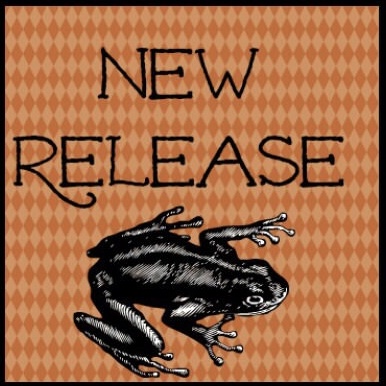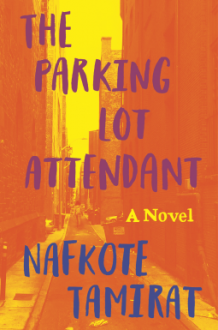
nb. I am a recovering heroin addict with decades clean. I lived through it when some medical professionals thought I wasn't worth the effort anymore. (That still upsets me - nobody should ever give up on an addict, especially medical professionals!) My addiction is private, but it's worth a mention here since it affects how I consume recovery literature.
I normally stay far away from recovery memoirs, having lived one myself and heard thousands more through the years. This book, though, promised to turn "the traditional addiction narrative on its head, demonstrating that the story of recovery can be every bit as electrifying as the train wreck itself." My ears perked up and I took note. The blurb goes on to say (from the publisher):
All the while, she offers a fascinating look at the larger history of the recovery movement, and at the literary and artistic geniuses whose lives and works were shaped by alcoholism and substance dependence, including John Berryman, Jean Rhys, Raymond Carver, Billie Holiday, David Foster Wallace, and Denis Johnson, as well as brilliant figures lost to obscurity but newly illuminated here.
That interested me tremendously. I find it endlessly interesting that so many artists are sure their art is linked with their particular dysfunction -- be it mental illness, substance abuse or misogyny. And I know of some writers and other artists who have done their best work only after clearing away the wreckage of addiction (Denis Johnson, Mary Karr, David Foster Wallace, Raymond Carver to name just a few...) Jamison's theory and examples seemed (from the blurbs) to be about how the stories we tell ourselves about addiction and recovery are, in fact, part of both solution and problem. I've read enough about the hard-drinking writer. I wanted to hear about the writers who got clean and sober and continued or gone on to great success. I didn't want another quit-lit book. I wanted something deeper and more interesting. What I got was mostly (but not all) another literary drunkalog, and this ain't Tender Is The Night, Where I'm Calling From, A Moveable Feast or any of the other rather brilliant drunkalogs we have to choose from.
Jamison has been compared to such iconic writers as Joan Didion and Susan Sontag. Yet her utterly singular voice also offers something new. With enormous empathy and wisdom, Jamison has given us nothing less than the story of addiction and recovery in America writ large, a definitive and revelatory account that will resonate for years to come.
Lofty, eh? It promises not just another quit-lit recovery memoir, but something that will alter the landscape.
So I was mighty upset when, for the entire first half of the 544-page book, we get precious little that differs from any number of other recovery memoirs, even while she explicitly states in the text that she will not be writing "just another recovery memoir." The language in this part is practically caressed, not just massaged. Every bartender's eyes or hair rates several adjectives, every drink is served with multiple metaphors. Everything is so damned beautiful. It felt -- a lot -- like the glorification of alcoholism and the behavior that comes with it. Eventually, on her own because it seems nobody else really noticed her problem, she will get sober, relapse and start over. It's here that the tone begins to change, but we're more than halfway through 544 pages at that point. In other words, she devoted a massive amount of pages to the glorious drunken Leslie and her oh-so-uniquely artistic pain.
At one point she says outright that she has trouble writing without putting herself in the story, and that's clear. She makes mention of the famous writers at Iowa with her, but only in passing because we're busy learning what she likes to drink, how much of it, when and how... Once she decides to get sober, she will fail and there will be a bit more longing for drinking/scheming etc, but the shine has gone, as anyone who has relapsed could tell you in far fewer words. It's after this point that the book starts to be unique. She is an excellent journalist, and I wish she'd excised her own story from this book entirely.
Her drinking is written in far greater detail than her recovery. She seems to take an emotional step back the minute she gets sober. I could feel fear at her vulnerability and recovery the minute it stopped being a drunkalog. Once sobriety starts, Jamison introduces journalism, statistics and experts, so we get no "other side of the coin" to the first half of the tome -- there is no honest portrayal of Jamison sober. It's obscured by her fact-finding missions and critical readings. This is where the other writers step in to give an assist.
Honestly it felt a bit like she used their stories of relapse and recovery to mask her own fear that she isn't qualified to write about her own recovery. Perhaps, like any smart addict, she has a fear of relapse. If you write a book called "The Recovering" you probably hope not to have to start counting days sober again after the publication date. Instead of saying that outright, though, she shows us other writers who did exactly that. The irony is that her sponsor tells her at one point that this is her problem in life -- it seems to also be a problem in her writing.
Jamison leads a charmed life, drunk or not. She is in prestigious writing programs and residences throughout the entire time chronicled in this book, and she's publishing too. High-functioning isn't even close to the right word. That doesn't change her pain or disqualify her sobriety, but it's worth a mention. She says nada about insurance or paying for medical care. When she does make mention of money, it's to do things most of us will only dream of - travel, foreign research, time just to write in exotic or beautiful locales. One could imagine she saw this note coming, since she shields herself from her privilege by mentioning it a few times.
But between all of that extraneous and rather privileged "just another recovery memoir," there are very interesting themes and excellent journalism. She has a great hypothesis that's buried a bit deeply, but it goes something like we are all subject to being seduced by the stories we tell ourselves and it might be good, if scary and different, to tell ourselves healthy stories rather than unhealthy ones. Artists don't have to write with their own blood, and if they do, they'll eventually bleed out. She has an excellent critical eye for reading others' writing and pulling support for her story out of their words. Those parts are extremely compelling, and I really wish that the majority of the massive amount of pages had gone to that.
One final thing. While she makes mention of the big names who were known to drink, some of these writers also seem to have suffered from comorbid disorders, and that is never discussed. I can't say, nor can Leslie Jamison or for that matter, her relative, author and psychologist, Kay Redfield Jamison, whether many of these suicides were caused by one specific illness - be it alcoholism or an affective disorder. I do wish these rather large topics weren't skipped. They're important, even if they don't fit neatly within the narrative built here.
What I would hope is that the personal story be completely excised next time and the researching, critical eye step in. Her best work is when she empathizes with the writing of others and explains it from the standpoint of one who has felt those feelings and lived to tell.



 Log in with Facebook
Log in with Facebook 









